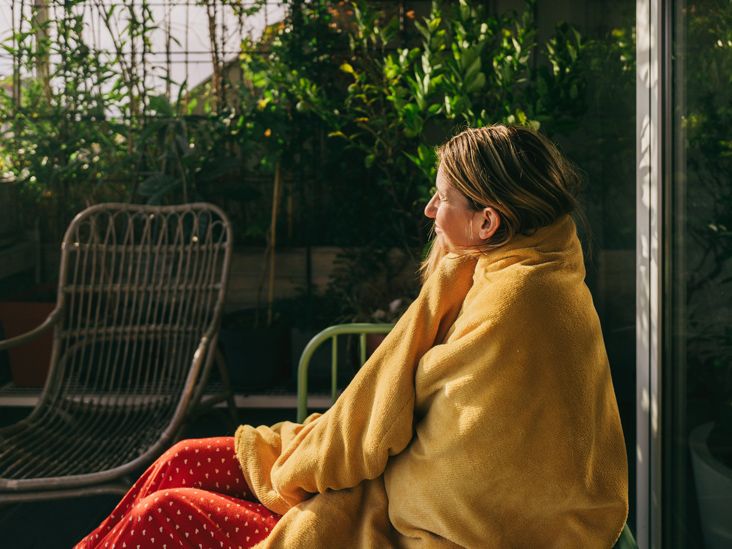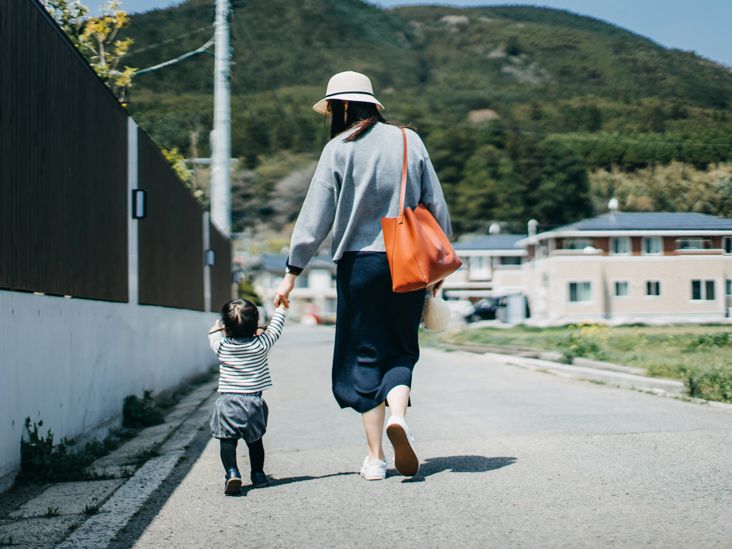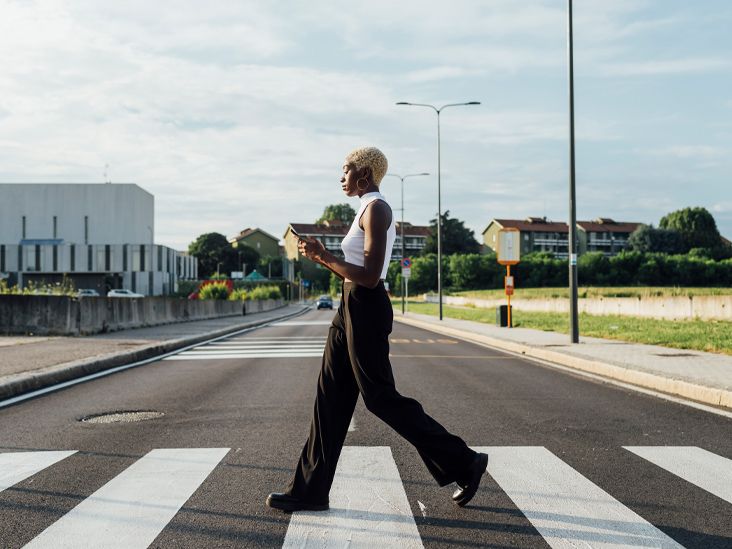
We include products we think are useful for our readers. If you buy through links on this page, we may earn a small commission. Here’s our process.
Healthline only shows you brands and products that we stand behind.
Our team thoroughly researches and evaluates the recommendations we make on our site. To establish that the product manufacturers addressed safety and efficacy standards, we:- Evaluate ingredients and composition: Do they have the potential to cause harm?
- Fact-check all health claims: Do they align with the current body of scientific evidence?
- Assess the brand: Does it operate with integrity and adhere to industry best practices?
Welcome back to You’re Not Alone: A mental health series where Healthline and PsychCentral aim to highlight mental health conditions that affect people’s day-to-day lives, and what products, apps, and services they use to make their everyday easier. This month we hear from Gabe Howard (as told to Hailey Hudson), an award-winning podcast host, author, and speaker who has bipolar disorder.
Content warning
This article mentions feelings of depression, mania, and suicidal thoughts and actions.
If you’re thinking of hurting yourself or are having suicidal thoughts, please call the National Suicide Prevention Lifeline at 800-273-8255.
You can also call 911 in the case of a mental health emergency.
For Gabe Howard, it might seem like his journey with bipolar disorder started 17 years ago, at 28 years old. But in reality, it started much sooner.
“I’ve got the high points that I like to give people… to turn it into something palpable to explain,” Gabe says.
However, he notes that it’s a complicated story: “For roughly the first 28 years of my life, I was very sick. Bipolar disorder was impacting my life in great ways, and I had no idea. I had no idea that I was sick.”
Gabe is 45 years old and lives in Ohio. He works for PsychCentral, hosting their flagship podcast Inside Mental Health, as well as conducting his own speaking and writing engagements. Among many other projects and appearances, he’s also written a book titled “Mental Illness is an Asshole — And Other Observations.”
Bipolar disorder has no cure, yet. But thanks to medication, therapy, and careful management, Gabe says that, nowadays, bipolar disorder impacts “maybe 10 percent of my life — and that’s probably the lowest number that I could get [it] at.”
This is what’s important to know about bipolar disorder. And this is Gabe’s story.
Bipolar disorder is a complex mental health condition that causes extreme shifts in mood and activity levels, ranging from high energy moods (mania or hypomania) to low energy moods (depression).
These severe ups and downs may make it difficult to carry on with daily life.
Symptoms of bipolar disorder often include:
- Manic episodes. In these episodes, people with bipolar disorder feel invincible. A manic episode can last at least a week and may include things like elevated self-esteem, extreme happiness, needing less sleep, racing thoughts, and engaging in risky behaviors, among others.
- Hypomanic episodes. Hypomania is similar to mania, but episodes tend to be shorter and less severe.
- Depression. Depressive episodes can include fatigue, feelings of worthlessness, hopelessness, suicidal thoughts or actions, and more.
While researchers don’t know exactly what causes bipolar disorder, it’s likely that genetics, brain chemistry, and life experiences all play a role. Bipolar disorder is diagnosed by a mental health professional like a psychologist or psychiatrist.
“I was 28 years old when I found out that everybody doesn’t think about killing themselves every day.”
Gabe is straightforward about his experience with bipolar disorder. For his entire life, he explains, he felt like he was sick. Bipolar affected him in ways he didn’t even realize. He would party for 3 days straight when he was manic, and then would skip events because of the resulting depression and crash.
He thought about suicide as far back as he could remember — “literally, I was born thinking about killing myself.” And he didn’t know any of this was unusual until he reached a breaking point at 28 years old, when he had a plan to commit suicide and was in the process of ending his own life.
Gabe had a friend whose mother was a psychiatric nurse. She approached him and asked if he was thinking about killing himself. He said yes — and he was so glad she asked.
Gabe’s friend convinced him to go to the emergency room, where medical personnel began asking him questions.
“The questions sort of had a pattern to them, you know, like a process… And I thought to myself, why are these questions written down? How did they know I was coming?… That’s weird, right?”
Eventually, Gabe realized: “There was a protocol happening here. A routine. They were just doing the thing. They weren’t doing this for Gabe — they were doing this for somebody who comes in talking about suicide. Which means I was in the right place. And that was sort of domino number 1 that my brain just wasn’t working, and that something was wrong.”
“Am I crying at the movie because it’s a sad movie, or am I crying at the movie because it’s depression starting and I need to get ahead of it?”
Gabe was admitted to a psychiatric hospital and spent 4 days in the mental health unit, where he was diagnosed with bipolar disorder. He was also prescribed his first bipolar disorder medications. However, it ended up taking him 4 years to reach a stable place with therapy, coping skills, and the right medications.
Gabe also went through systematic treatment enhancement program (
“I was released into that type of program that you do for 6 weeks. I learned a lot about bipolar disorder, I learned a lot about medication, I learned a lot about a lot of things.”
Over the next 4 years — which Gabe refers to as his “4-year epic battle against bipolar disorder” — Gabe learned a lot of coping skills to deal with the condition. Understanding what behaviors were normal and learning which things were driven by bipolar disorder versus his personality took a long time.
Today, Gabe says that although it can vary, he feels that bipolar disorder impacts maybe 10 percent of his life.
“I could go months without having a bipolar episode, but as I did mention, I do have to take medication in the morning, and I do have to take medication at night. I have to keep up with my doctor’s appointments. And I need to be aware of what’s going on in my body,” he says. “Am I crying at the movie because it’s a sad movie, or am I crying at the movie because it’s depression starting and I need to get ahead of it? I’m always doing some of these things, so it’s something that always takes just a little bit of time.”
For Gabe, it’s important to stay on top of his medication, therapy, and other things that help him manage his bipolar disorder. He lists four simple apps on his phone that have made a huge difference in helping him manage and cope.
BetterHelp
Price: $60–$90 per week
BetterHelp is an online therapy app that connects you with a qualified therapist. For some users, BetterHelp sessions can be more accessible and affordable than in-person therapy.
Gabe uses the BetterHelp app for online therapy. He loves the convenience — a flexible schedule with no need for a commute — as well as the messaging feature.
“I can type things in as they happen… The advantage of that is sometimes the thing that really impacted you on Monday, by the time you get to your appointment on Thursday, maybe it’s glossed over. Because I was able to send that message [to my therapist], she can bring it up [in our session].”
There are so many pluses to online therapy, Gabe says. And for him, the ability to contact his therapist anytime is one of the best.
Google Calendar
Price: Free
Google Calendar sends you alerts or notifications, helping to remind you to take medications or complete other tasks.
For Gabe, staying on top of his medication every morning and evening is one of the major keys to managing his bipolar disorder. That’s why he uses Google Calendar to send him an alert to take his medication. When Gabe first started taking medication, the calendar app’s notification made a huge difference in helping him get into the habit.
“It’s also very helpful when I travel,” Gabe says. “It’s so easy, being in different time zones, to forget to take your medication or not even think about it because there’s so much other stuff going on. There’s that reminder.”
Although phone privacy settings may vary, Gabe adds another benefit of Google Calendar over other pill reminder apps: Google Calendar does not collect data for pharma companies, which can be a relief to people living with bipolar disorder who might experience paranoia.
Price: Free
If you curate your feed correctly, so the algorithm will show what you want to see, Instagram showcases little squares of the joy and happiness in the world.
“Nobody believes me when I say this,” Gabe says, “but I find social media to be helpful.”
The key, he adds, is carefully controlling his social media so that it shows him what he wants to see. “I truly and genuinely love seeing the people that I follow on Facebook. Because there are people who, in spite of really bad luck and really bad circumstances, are finding joy in the world and sharing it with these small little communities that I get to be a part of. And that’s wonderful.”
He recommends using Instagram instead of Facebook. Instagram is easy to curate, and in his experience, it tends to be a happier platform.
“I recommend Instagram to a lot of people because you can just see pictures, and you can block all the names that make you mad. I like to see people experience joy when I’m really, really sad. It’s helpful to me. And, I would be lost without it.”
Notes
Price: Free
Notes provides a place to brain dump angry thoughts and revisit them later when you’re in a calmer headspace.
Gabe uses the generic notepad app on his phone to help him calm down and think through situations. In a situation where he might be tempted to instantly react with anger, Gabe instead writes down everything he’s thinking in the notes app. He gives himself some space and then returns 24 hours later to read his notes.
“Before learning this coping skill, learning this method, I burned a lot of bridges over what I later found out were literally simple misunderstandings,” Gabe explains. “Utilizing this method, calming down, waiting 24 hours to react has prevented a lot of problems.”
In a
Gabe also notes that it’s likely there are many more deaths caused by this condition, but that percentages can be difficult to track.
“When someone with bipolar disorder dies, there’s always this question of, did they die because they had mania and thought they could fly, or did they just slip off the roof and fall?”
Another point he brings up is that bipolar disorder can go asymptomatic for a long time.
“It’s one of the things people don’t realize about bipolar disorder. Weeks, months. In some cases, even years, depending on who you are.”
He describes bipolar disorder as a spectrum, ranging from suicidal depression to God-like mania.
“But also in that spectrum, there’s a middle — the ‘normal,’ the stereotypical, the average. And when you’re in that middle part, you can really look at the extremes and think, ‘well, why did I do that?’ And, if you don’t understand what the hell is going on… you come up with the wrong answer.”
Gabe has always had bipolar disorder. Gabe will always have bipolar disorder. But thanks to continued treatment and management, he now defines his recovery like this: “Spending more time living life than managing bipolar.”
For him, that’s a good life.
You can connect with Gabe via his website and Instagram. Click here to listen to his podcast on PsychCentral.
Hailey Hudson is a full-time freelance writer and content marketer based out of Atlanta, Georgia. She focuses in the health, marketing, and education industries. Clients include Livestrong, Runner’s World, Dell, and others. Hailey is also a novelist and a musician.



